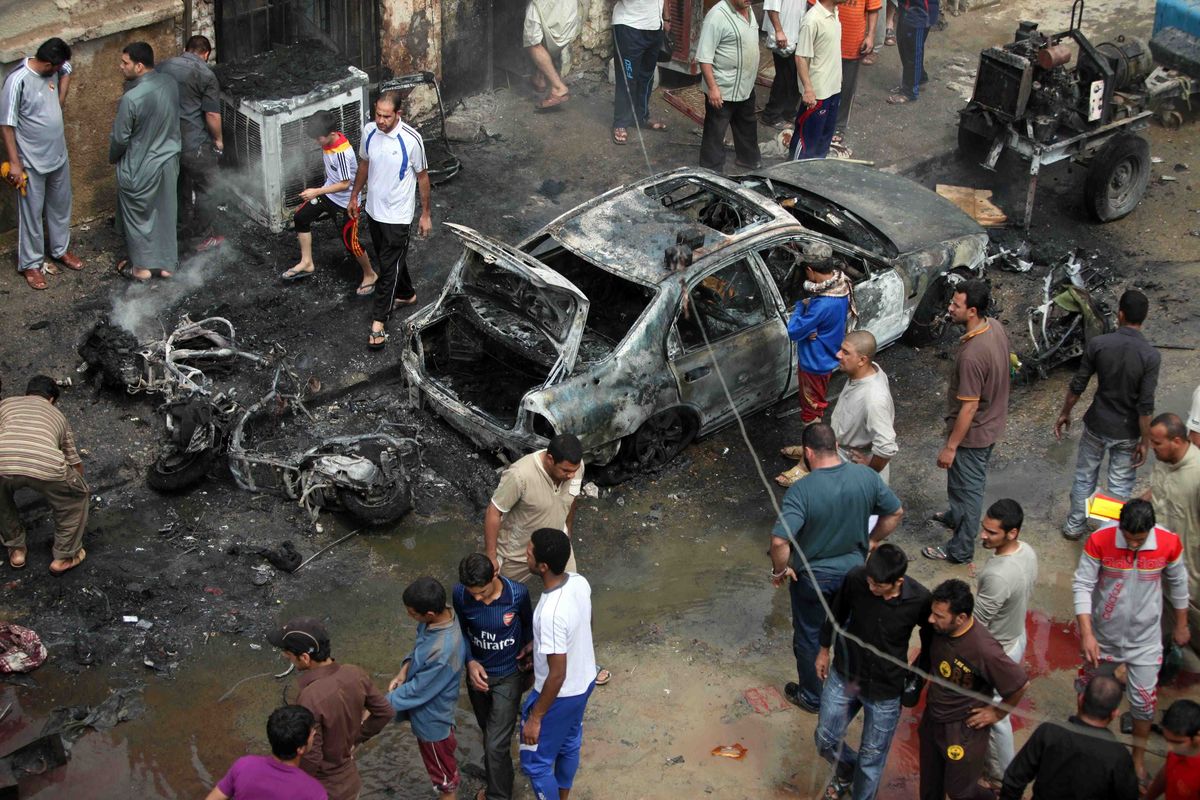Bombings in Iraq claim 67
Multiple attacks come days after al-Qaida leaders killed

BAGHDAD – Militants launched major bomb attacks in Baghdad and a western province Friday, killing at least 67 people and raising fears that the deaths of the two leaders of al-Qaeda in Iraq would not quell sectarian violence.
Bombs ripped through Shiite Muslim sections of Baghdad after Friday prayers and in western Anbar province, where Sunni Muslims first successfully revolted against al-Qaida in Iraq four years ago. There were no immediate claims of responsibility, although the coordinated bombings bore the hallmarks of al-Qaeda in Iraq.
A senior aide to Shiite cleric Muqtada al-Sadr told a satellite news channel that the group’s Mahdi Army militia, which has been observing a truce since the end of 2008, would be activated to help guard mosques. Such a move would hearken back to 2004 and 2005 when amid widespread sectarian violence, the militia guarded the Sadr City area of Baghdad against insurgent attacks.
The bombings came as politicians are still locked in a stalemate over forming the next government, six weeks after last month’s national election.
U.S. forces are scheduled to draw down to 50,000 by the end of August. U.S. officials have indicated their plans remain on track despite the delays in assembling a coalition to form the next government.
The violence followed the announcement Monday that the head of al-Qaida in Iraq and an associate who led the Islamic State of Iraq, an umbrella organization, had been killed in a joint Iraqi-U.S. military operation.
Militants have sought to seize the current political vacuum to spark a new civil war between the Shiite majority, who suffered under Saddam Hussein, and the country’s former Sunni Arab elite. Friday’s violence was evidence that despite the losses, the militant group still can carry out destabilizing strikes.